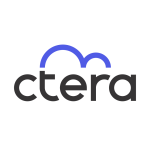What is our primary use case?
Some of the instances in the cloud, they needed NFS mount, and Microsoft did not have anything. That's why we are using Azure NetApp Files, we need to export NFS shares across multiple clients.
We are using version 1, which is the best version in my opinion.
This product is deployed in the Microsoft Azure Cloud.
How has it helped my organization?
Azure has their native tools. We use the server tools to monitor the response time and availability of the shares.
What is most valuable?
- You can scale.
- The response time is very good on Azure NetApp Files. This is important because it solves the problem where we can export our Unix NFS shares with Windows as well as our UNIX clients.
What needs improvement?
We would like for the files which are coming in that we can version them. So, if a file is accidentally deleted, there should have a recycle bin option where we can go back, and at least once, clean it up.
They could probably improve the versioning and other advanced features. The replication is not available in all the Azure Availability Zones.
Buyer's Guide
Azure NetApp Files
December 2025
Learn what your peers think about Azure NetApp Files. Get advice and tips from experienced pros sharing their opinions. Updated: December 2025.
879,422 professionals have used our research since 2012.
For how long have I used the solution?
We have been using it for about six months.
What do I think about the stability of the solution?
So far, we are not having any issues with the solution. It is working very well.
What do I think about the scalability of the solution?
It is very easy to scale. We can scale. There are some certain limitations on the size, but we haven't hit the limit yet, so I don't see any problems.
How are customer service and support?
It has been very good. Whenever we call the account team, the support team is very responsive. So, we don't have any issues with the support.
Which solution did I use previously and why did I switch?
Our management made a decision that we had to move into the cloud. They went into a agreement with Microsoft that they would like to reduce their on-prem data center infrastructure and move as many applications into the cloud as they can. As part of that decision, we are migrating some applications from an on-prem environment to the cloud.
It has saved a lot of time. Because in the older, conventional hardware system, they need to raise a ticket to go to storage engineering, then storage engineering would increased the size. Now, it's dynamic. You don't have to do anything. This improved the time by more than 50 percent.
How was the initial setup?
The initial setup was pretty straightforward. We have been using NetApp products for long period of time, so we understand how they work. There is not a huge difference between the way these products are implemented in the cloud. Because we have been working with it for a long period of time, it's easier in the cloud to deploy.
This is very easy to implement. It doesn't take a long time to create shares and go through the security team to get approvals, open firewall ports, etc. So, it improves the delivery time a lot, it's very fast to deliver, and it is very easy to deploy.
What about the implementation team?
We deployed it with the help of Azure consulting services. Our experience was good.
What was our ROI?
The performance has improved by about 30 percent.
The solution’s combination of the ease of use, simplicity, and reduction in IT management versus the cost has helped a lot. It is very fast to deploy. It's very easy to maintain. You don't have to do a lot in the cloud to maintain this thing, so it gives good performance. It's fast to deploy, easy to maintain, and it gives a better performance. These are the most basic three criteria for any application. This saves cost because the manpower you need to deploy is going down. You're getting better performance and not buying new resources. You have resources available in the cloud. It's just a couple of clicks, then you're good to go.
We have not yet seen ROI. We are not at that point yet. We are just recently starting using it.
Which other solutions did I evaluate?
We are working with the NetApp Cloud Volumes ONTAP. One issue with that is you can use single node. It doesn't have redundancy right now. That is something we are a bit concerned with. So, we are thinking about it, and what are the alternatives?
What other advice do I have?
The solution is solid. It works as designed. You get better performance and it is easy to use. It's a solid product.
We are using the same applications and not doing anything new. However, we are thinking about it.
I would rate it an eight (out of 10).
Disclosure: My company does not have a business relationship with this vendor other than being a customer.















